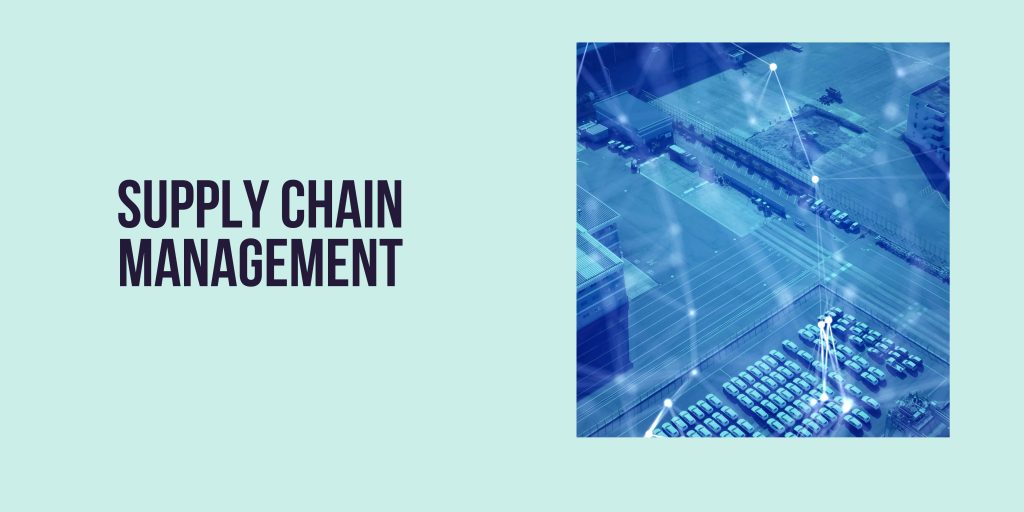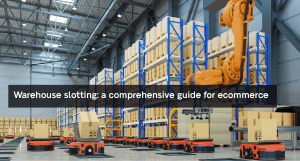A supply chain is the system that connects your business and suppliers, enabling you to produce and deliver goods to your customers. This system involves orchestrating various processes, from procuring raw materials and developing products to efficiently handling logistics.
Accurately managing the supply chain means optimising inbound and outbound logistics processes, namely the key to stronger cash flow, as well as a more agile business.
In this article, we will discuss the importance of the supply chain for your business and find out how to develop a successful, as well as sustainable supply chain.
The different stages of a supply chain
From raw materials to finished products
This stage involves converting the raw materials and sourced items into the final product that you sell to your customers. Challenges during this stage involve ordering the right quantities at the right time and ensuring every product matches high-quality standards, as well as negotiating good deals with suppliers.
Delivery: distributing the finished products
This stage involves delivering the finished goods to the distributors, retailers, or directly to the end-users. Challenges during this phase can be finding the most cost-effective transportation, managing shipping volumes, and ensuring timely delivery.
Returns
Managing returns is another crucial aspect of supply chain management. Since the return process usually falls on the business to cover the expenses, it is estimated that it can amount to more or less 66% of the item’s original price. This is precisely because of required labour, logistics, and quality inspection. Therefore, it is essential to seek cost-effective reverse logistics solutions, often achieved by partnering with a third-party logistics provider (3PL).
Different Supply Chain Models
There are several supply chain models based on each company’s unique requirements and objectives.
Continuous flow
This supply chain is designed for companies who have a constant customer demand for products and don’t experience majour fluctuation in their operations. Because the brand has a clear idea of demand, it can produce the products constantly without fearing loss, thus selling them with minimal variation.
Challenges here lie in refining processes or minimizing costs, rather than dealing with unexpected events or market changes.
Fast supply chain
This supply chain model is perfect for businesses that deal with products with short life cycles, like those operating in the fashion industry. In fact, these brands need to procure, sell, and distribute items before they go out of fashion.
Challenges here lie in predicting demand, orchestrating fast production and transportation of goods, as well as managing excess or obsolete inventory.
Agile supply chain
Seasonal brands experience sudden rise in demand for their products which falls significantly throughout the year. This necessitates a different approach to supply chain management, requiring an agile supply chain that can be responsive to changes in demand. Challenges here lie in communicating with suppliers to make sure there is enough stock to cover customers during peak periods, while accurately managing inventory to avoid overstocking and waste. This advantage can be achieved thanks to an inventory management system.
The custom supply chain
This model is a hybrid of the continuous flow and agile supply chains. It is the perfect solution for businesses with different product requirements or that focus on meeting individual customer needs. In this model, a part of the supply chain operates continuously, producing the basic components of products that remain consistent regardless of customization. Meanwhile, other parts of the supply chain remain agile and flexible, adapting to the specific requirements of each order.
Businesses based on this model require advanced supply chain management systems to track and coordinate the various processes involved.
Creating a sustainable supply chain
Implementing environmentally friendly and socially responsible practices throughout the supply chain is essential for every business nowadays. This means reducing the carbon footprint of operations, optimizing logistics and minimizing waste. Immediate effects can be seen in implementing energy-efficient logistics and warehousing strategies, as well as promoting recycling in packaging and distribution.
How can eLogy help your business create a sustainable supply chain?
eLogy has addressed the critical issue of pollution caused by e-commerce shipments and developed innovative solutions for sustainable logistics. In this article by Milano Finanza, Marco Lanzoni, eLogy CEO and founder, underlines the importance of supply chain digitization to build a more sustainable ecommerce. eLogy’s multi warehousing approach not only helps to save on shipping costs, but also contributes significantly to the global fight against climate change. eLogy’s advanced WMS platform optimises routes by automatically selecting the most efficient carrier and the fastest route. This minimizes environmental impact and CO2 emissions caused by transport. Additionally, eLogy boasts a vast network of warehouses strategically located close to clients. This minimizes delivery costs, reduces the number of shipments, as well as CO2 emissions caused by deliveries. This proximity to clients is a key advantage, as it allows for quicker and more efficient distribution of goods, reducing the need for long-haul transportation and, consequently, lowering the environmental impact of the supply chain.
How eLogy can add value to your supply chain
A strong supply chain relies on transparency. A successful business strategy must be based on real-time data and analytics, which allow retailers to make more informed decisions while adapting quickly to fluctuations in demand.
eLogy helps businesses obtain real-time information on inventory, orders, and returns, providing ecommerce businesses with a comprehensive solution to optimize their supply chain, while reducing costs, improving operations and minimizing their environmental impact.




